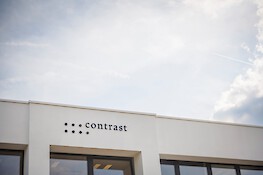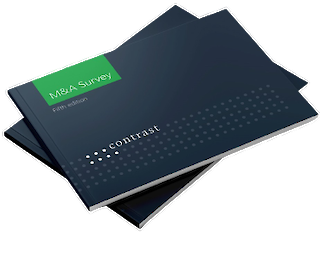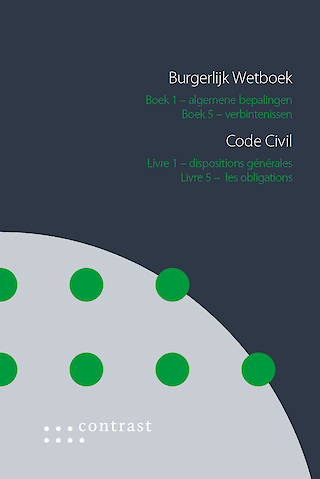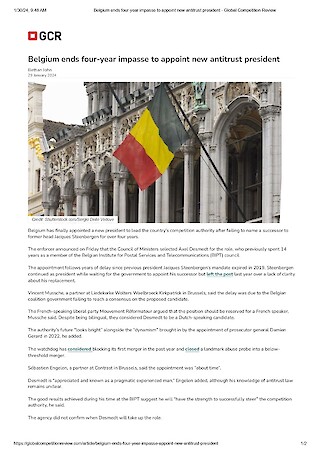In the Picture
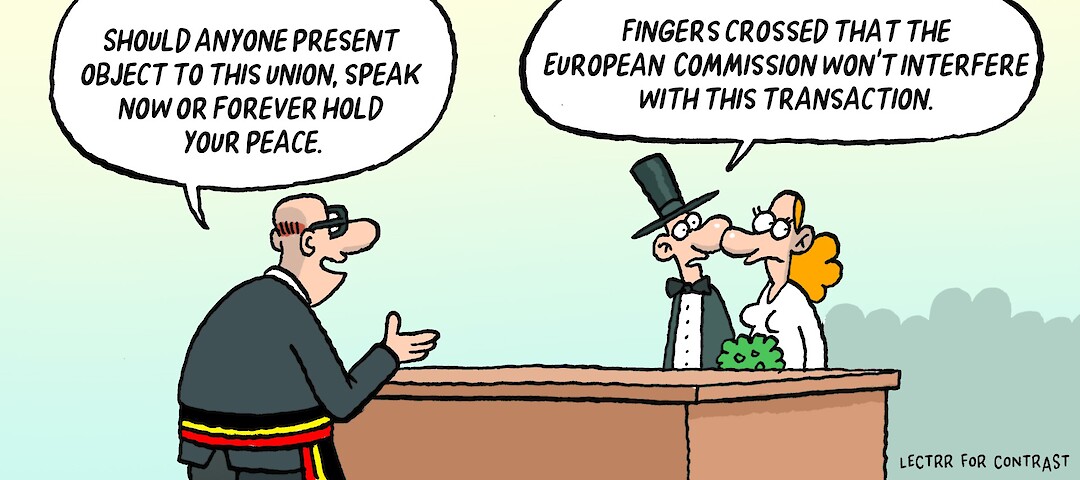
Look before you leap! Lessons from the failed Illumina-GRAIL marriage
November 2023Imagine a start-up that has yet to put a single product on the market and still hasn’t achieved any turnover in the EEA. When it is announced that the start-up is being taken over, however, a demand is received from the European Commission to give notice of this acquisition in order to receive its advance approval. What to do?
A brief clarification.
In 2020, Illumina, an established biotech company, wanted to acquire the promising GRAIL, a company active in the field of early cancer detection. At the time of the acquisition, GRAIL had not yet brought any product to market, and it had no turnover in the EEA. It therefore did not appear necessary to give notice of the intended concentration to the European Commission or an EU Member State. Yet, in 2021 Illumina received a demand from the Commission to notify the transaction.
The reason for this can be found in article 22 of the EU Merger Regulation, which provides that the Commission can examine a transaction when national competition authorities so request, if this transaction (i) affects trade between the Member States and (ii) threatens to have significant negative consequences for competition within the territory of the referring Member State or States. And this even if the transaction does not meet the national thresholds for control of concentrations.
The Commission has recently encouraged the making of such referral requests in an effort to be able to prevent so-called “killer acquisitions”, whereby established players take over young innovative start-ups in order to throttle their future competitors in the crib. Killer acquisitions have often escaped the notification duty because start-ups typically have little or no turnover, and so the notification thresholds are not attained. This can also be the case for undertakings in the digital sector and for undertakings with access to essential input. For such undertakings, the turnover is not necessarily an accurate reflection of their competitive potential.
Illumina filed an appeal against the Commission´s demand to notify the acquisition of GRAIL. However, the General Court of the EU confirmed the Commission´s position, after which Illumina appealed to the Court of Justice, where the case is still pending.
In the meantime, Illumina had notified the acquisition of GRAIL to the Commission. Yet, even during the Commission´s examination, it announced that the acquisition had been completed. In so doing, Illumina and GRAIL violated the standstill obligation, which prohibits undertakings from implementing concentrations prior to their approval by the Commission. This gives the latter the time to investigate the concentrations before they structurally modify the competitive landscape.
Illumina and GRAIL had deliberately and knowingly engaged in gun jumping. For this, the Commission imposed a record fine of 432 million euros on Illumina, and a symbolic fine of 1,000 euros on GRAIL. Illumina filed an appeal against this fining decision as well.
Moreover, after its examination, the Commission refused to approve the acquisition, believing that it did indeed threaten to have significant negative consequences for competition. Illumina appealed this refusal decision as well.
In the meantime, the Commission has ordered Illumina to divest GRAIL and restore the situation to the way it was prior to the acquisition. If Illumina does not comply with these restorative measures, the Commission can impose periodic penalty payments of up to 5% of Illumina’s average daily turnover and fine Illumina up to 10% of its annual worldwide turnover. Illumina declared that, should it fail to win on appeal, it would sell off GRAIL within the following 12 months.
Concretely.
- The Commission can examine intended concentrations that exceed neither the EU nor the national turnover thresholds.
- Thus, the Commission can review transactions where the turnover of at least one of the undertakings involved does not accurately reflect its competitive potential. For example, the Commission can verify whether a killer acquisition is involved, where an established player wishes to eliminate a future competitor by taking it over at a point in time when it is a start-up with little or no turnover.
- Illumina/GRAIL once again confirms that implementing a concentration before it is approved can lead to the imposition of high fines for gun jumping. The Illumina fine is in fact the highest ever meted out for gun jumping. It is also the first time that the Commission fined the target company (symbolically), because the latter intentionally participated in the infringement.
- Illumina/GRAIL also confirms that the Commission is prepared to use its power to order restorative measures and oblige the undertakings involved to undo the concentration.
Want to know more?
You can find the Merger Regulation here, the Commission´s communication on the referral of concentration cases here, as well as the Commission´s communication on the application of the referral mechanism of article 22 of the Merger Regulation here.
Several press releases are available concerning the Illumina/GRAIL saga: on the Court´s decision here, the refusal decision here, the fine decision here, and finally on the restorative measures imposed here.
You can also find more information about gun jumping in earlier In The Pictures, such as:
Please consult our website or contact one of our team members if you have questions or require more information:







